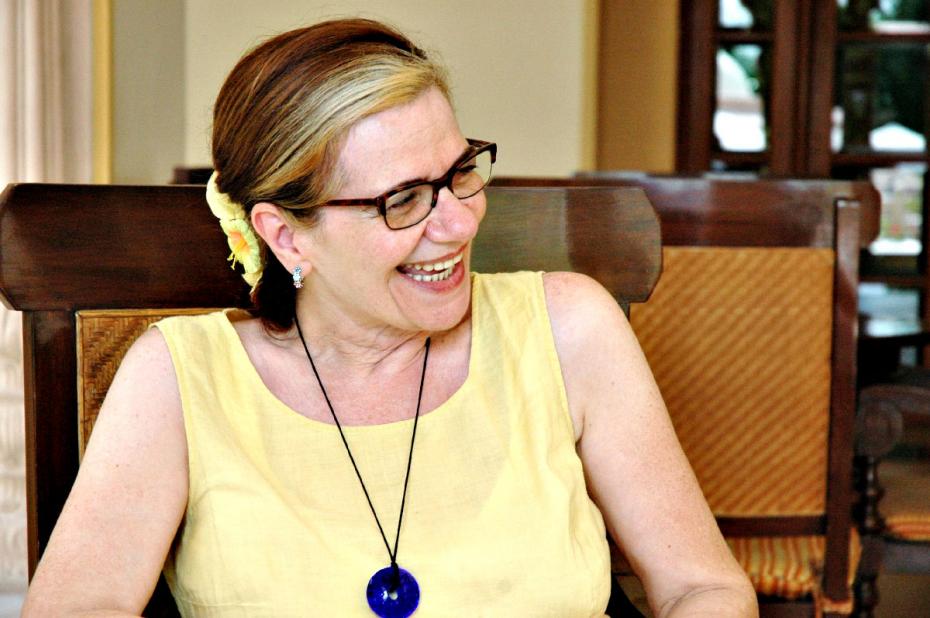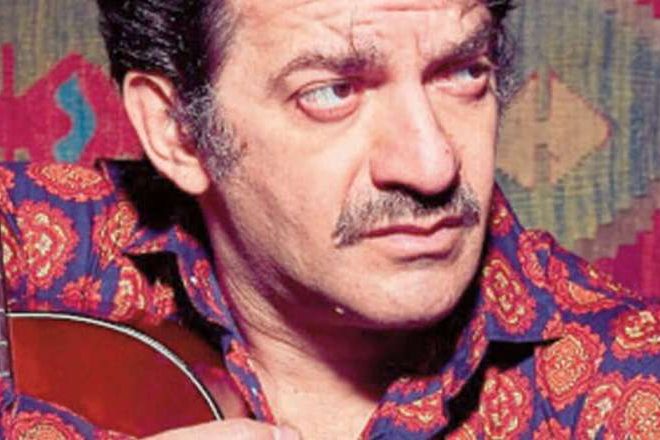Editor Gabriella Cristiani (born in Foggia, city in Apulia, southern region of Italy), had the fortune to grow up in the film circles of Bologna (Emilia-Romagna region of Italy), living and breathing the excellence of Italian cinema, between the late 60s and early 70s.
An era, which stood out because of its experimentation and new cinematic languages. That thriving climate left its mark on Gabriella, who put aside temporarily her ambition to become director and devoted herself to editing.
Cristiani, upon assisting the experienced editor Franco (aka Kim) Arcalli until his untimely death – in Bernardo Bertolucci’s Last Tango in Paris (1972) and 1900 (1976) – become the latter’s chief editor, from La Luna (1979), passing through the apex of her career with The Last Emperor (1987) – which earned her the Academy Award – to The Sheltering Sky (1990).
Over the years, she has collaborated with other international filmmakers and, featuring among the pioneers of digital film editing, she has never stopped innovating and experimenting.
More recently, her early dream of directing came true, as she debuted behind the camera, in 1999.
Thrilled by her successful venture into the never experienced sci-fi genre, she is now scouting for interesting projects to direct in the near future.
Dear readers, when dealing with Gabriella Cristiani, bear in mind to expect the unexpected!
Tell us about your cultural background. How did you grow enthusiastic about cinema and, in particular, editing?
I was lucky enough to grow up in very close contact with the most interesting personalities, working in the movie industry between late 60s and early 70s, the likes of filmmakers, Federico Fellini, Bernardo Bertolucci, Roberto Rossellini, Michelangelo Antonioni, Giulio Questi, and, of course, editor Kim Arcalli (who was my friend, mentor and my companion).
Their passion for the cinematic art was “infectious” and I got fascinated by cinema.
How important was your early collaboration with Kim Arcalli, in informing your editing style?
I was Arcalli’s assistant editor for seven years and I learned from his insights, as well as his mistakes. However, he had his own style and I had mine.
There has always been a prolific exchange of ideas. He had a more intellectual approach, while I’ve always relied heavily on instinct.
Moreover, he thought in terms of revolutionizing everything, while I’ve always thought in terms of innovation, both cinematically and culturally.
Sum up for us your artistic collaboration with Bernardo Bertolucci. In particular, what were the most challenging moments and the most rewarding ones?
Every project is both a challenge and an accomplishment. The process of making movies repeats itself over and over again. Essential is to bring innovation to it.
In every single movie, the main challenge is to find a way to innovate, while the most rewarding moment is to go through with it.
In 1988, The Last Emperor was awarded with nine Oscars, including one for Best Film Editing. As you were working on it, did you have the perception that it was different from Bertolucci’s previous films?
No, I didn’t, because every Bertolucci’s movie is a piece of art. The only difference was that, in huge productions like that, all the people involved were extremely talented and gave their absolute best.
Every one of us had over twenty years of experience under our belt, so the time was ripe for recognition.
Honestly, I don’t think that The Last Emperor was better than Bertolucci’s previous films, except for the synergy of the entire cast and crew.
Your work in Bertolucci’s following film, Il tè nel deserto (The Sheltering Sky, 1990), was praised for its technical innovation, represented by its nonlinear editing, by employing digital means. Tell us more about that.
While Bertolucci was away, I cut the three-hours long film in twenty-eight working day, by pioneering a brand-new laser system. Thus I broke a record.
Once Bernardo came back and watched the film, he felt that the process went too fast, and he was unprepared for it. Therefore, we packed the laser machine and sent it to L.A., together with a crew of engineers.
I gave the false impression that you can do your work quickly. That’s not true, because even with the technological developments, you still need time to reflect.
Tell us more about your work as editor for Teleios, a sci-fi film by Ian Truitner (soon to be released in the States).
The movie just premiered in London, UK, at the SCI-FI-London International Film Festival (April 27- May 6) and it had an enthusiastic reception.
I accepted the challenge to work on my first sci-fi film. However, our film was very different from the usual sci-fi movies. It represents a model for good innovation. We broke the genre conventions and that paid off.
The young director/writer had a clear vision of his project. Despite that, during post-production, I changed the structure substantially. He understood and accepted my creative input and the final product is something we can both be proud of.
The director of the festival admitted that he had to watch it three times. He told me that despite it looked like too mainstream, every element was so captivating and, during each screening, you keep discovering new layers.
In 1999, you debuted behind the camera, by directing the fictional film, Ladies Room and the documentary Desert Roses. How were those experiences?
I enjoyed a lot those challenging experiences and, after a long hiatus, I’m about to direct again.
Actually, directing was my first choice, as I was growing up. However, since everybody in the industry praised my flair for editing, I ended up becoming an editor.
What are your functions as council member, at the COMITES – LA (Committees of Italians Abroad)?
It’s a pleasure and an honor to offer my service. The main issue is that, despite we wish to take a lot of initiatives, we don’t have the necessary funds.
Personally, I don’t understand why Los Angeles is not getting the same support as other communities all over the world. I hope the Italian Government is aware of our needs and will operate in that direction.
In conclusion, do you have contacts with the Italian-American community, outside this organization?
I feel a stronger bond with the community, hailing from my Italian native region, Apulia. However, I travel a lot for work and my “physical” contacts with the community are limited.






























